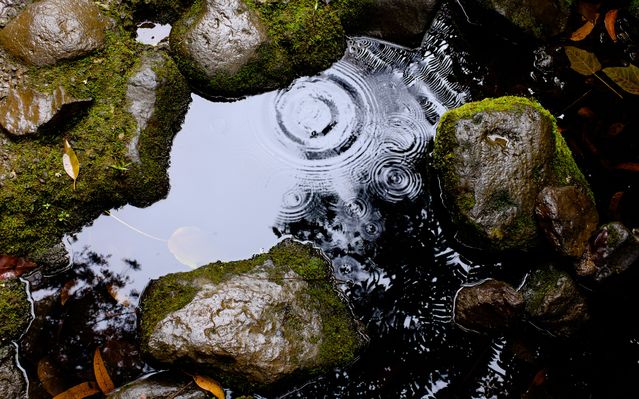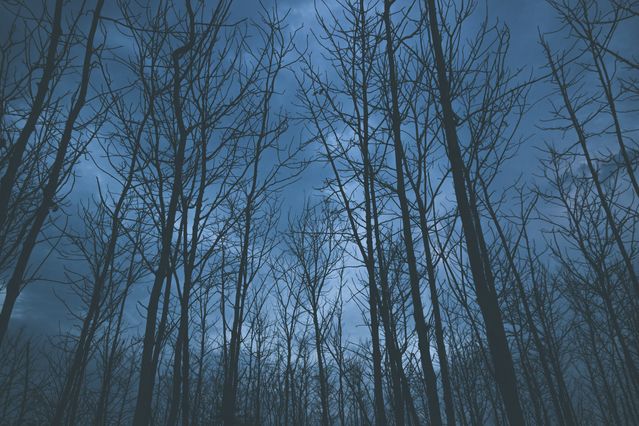Beauty
The Sense of Wonder
Why we need to preserve this vital capacity and how solitude can help.
Posted July 14, 2017

Pioneering conservationist Rachel Carson, who sparked the modern environmental movement with her 1962 book Silent Spring, wrote a little known essay a few years earlier called “The Sense of Wonder.” The piece describes her attempts to help foster and preserve her young nephew, Roger’s, sense of wonder and awe in the face of the natural world. She understood the necessity of protecting wonder – a way of being toward the world that tends to get stamped out of consciousness by the time we hit adulthood. Sixty years later, in the midst of our hyper-technoscientific culture, it seems all the more urgent that we remember what’s too often lost, and the price we pay for this loss.
Carson writes:
A child’s world is fresh and new and beautiful, full of wonder and excitement. It is our misfortune that for most of us that clear-eyed vision, that true instinct for what is beautiful and awe-inspiring, is dimmed and even lost before we reach adulthood. If I had influence with the good fairy who is supposed to preside over the christening of all children, I should ask that her gift to each child in the world be a sense of wonder so indestructible that it would last throughout life, as an unfailing antidote against the boredom and disenchantment of later years, the sterile preoccupation with things that are artificial, the alienation from the sources of our strength.
Rachel Carson yearns to endow each child with an “indestructible” sense of wonder that can be carried into adulthood. In some sense, this sense of wonder is indestructible, still with all of us, only it has been repressed to our consciousness. Living as we do in an almost exclusively human-centric/human-made bubble, we forget how to truly see the world outside, a world which is turned into material objects – natural “resources” – under our gaze. We forget that, as animals, the world of nature is our home. We forget that we belong here.
That forgetting has serious consequences, most obviously for the health of the non-human natural world. But human psychological health is endangered as well. When a significant aspect of our humanity is repressed we fail to thrive. Something feels wrong or off. We suffer from a sense of alienation, according to psychotherapist and wilderness guide, Bill Plotkin. He argues that despite their varied presenting concerns, most of his psychotherapy patients over the years have struggled with a “core restlessness,” a deep-seated sense of homelessness:
As a psychotherapist…I believe that one of the root problems for nearly all the people I ever worked with in therapy was this core restlessness, this core sense of "I don't really belong here, I'm not at home," which we translate in our conscious minds to things like "I don't fit into human society, no one really loves me, I'm not worthy," and so on.
To our human-centric mind, this alienation Plotkin describes equates to an alienation from human society. While this may be partially true, it’s too narrow an interpretation. It fails to acknowledge a central root cause. Indeed, Plotkin ties this core restlessness, this homelessness, to a disconnection from nature. He argues that our sense of wonder is the key to reconnection:
I believe a big part of this experience derives from our not feeling at home in nature. But it's never too late to learn how to do this. It's not even learning, actually; it's to use our sense of wonder to embrace this wild world again. It's one of the most important and effective therapies, I believe.
Reawakening the sense of wonder does not simply help us appreciate the beauty of nature. It can help heal a sense of alienation and loneliness. Because when a person is truly present to more-than-human world, how could they ever really feel alone? In working toward the recovery of a sense of wonder, we are cultivating an ability to see beyond ourselves, beyond the limits of the human bubble. It is a humbling process; humility is a necessary ingredient to the experience of awe and wonder. Via our humility, via our personal smallness, the larger world reveals itself to us more fully.
Rachel Carson clearly understood the benefits for adults of reconnecting with the sense of wonder:
What is the value of preserving and strengthening this sense of awe and wonder, this recognition of something beyond the boundaries of human existence? Is the exploration of the natural world just a pleasant way to pass the golden hours of childhood or is there something deeper?
I am sure there is something much deeper, something lasting and significant. Those who dwell…among the beauties and mysteries of the earth are never alone or weary of life. Whatever the vexation or concerns of their personal lives, their thoughts can find paths that lead to inner contentment and to renewed excitement in living. Those who contemplate the beauty of the earth find reserves of strength that will endure as long as life lasts. There is symbolic as well as actual beauty in the migration of the birds, the ebb and flow of the tides, the folded bud ready for the spring. There is something infinitely healing in the repeated refrains of nature — the assurance that dawn comes after night, and spring after the winter.
But how to revive our sense of wonder? This revival is not an all or nothing proposition; we can make incremental movements along the alienation-to-reconnection continuum that can make a big difference in our lives. One pathway toward revival, based on my own personal experience and scholarly research, is the practice of solitary retreat in a wilderness or semi-wilderness setting.
Practicing silence, solitude, and simplicity for days or weeks on end can change a person. Or, better put, it can help a person revive fundamental aspects of her humanity long lost to consciousness over the course of becoming an adult. One of the aspects that can be revived is the sense of wonder in the face of the natural world.
At a certain point during their retreats, after the chattering of their minds quieted down, the women I studied experienced a marked opening in their perception and a greater ability to be present to the world around them and experience it as more fully alive and participative – as a community of subjects in their own right, rather than a collection of objects. The world appeared in a richer and increasingly enchanted light.

The women found themselves standing in awe, open-eyed and open-eared as they took in the larger conversation all around them – the sound of snow melting, the deep blue of twilight, the dance of gathering storm clouds, the crying of foxes at night, the reflections in raindrops on fallen leaves. In attending to the world in this more profound and sustained way, the women felt increasingly more alive, more at home in the natural world, and more comfortable in their own skin.
The sense of wonder is the ability to be present to the world and touched by that world. It’s about feeling awe in the face of the Other. Sometimes we have to step aside from the human matrix, to pierce the bubble that encapsulates us, to reacquaint ourselves with all the Others and to be reminded of the larger tapestry into which we are woven. A solitary retreat can present us with an opportunity to do just that.




